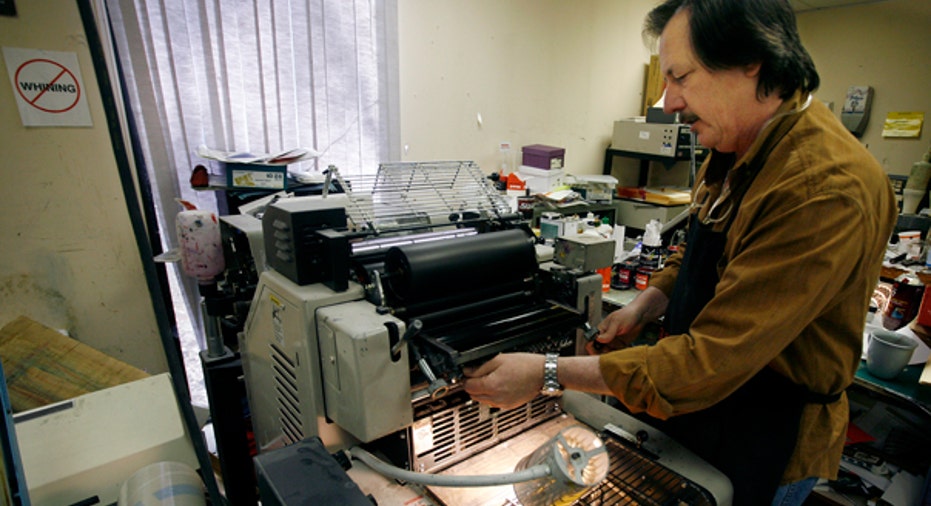Enough is Enough: When to Fire an Employee

How do I know that it is time to fire an employee? When is enough, enough? -- Jacob of Orlando, FLThe following answers are provided by the Young Entrepreneur Council(YEC), an invite-only nonprofit organization comprised of the world's most promising young entrepreneurs. The YEC promotes entrepreneurship as a solution to unemployment and underemployment and provides entrepreneurs with access to tools, mentorship, and resources that support each stage of their business’s development and growth. E-mail your questions about best practices for starting up and/or managing a small business to smbs@foxbusiness.com.
No. 1: No Call/No Show From Nancy T. Nguyen of Sweet T
This past week I let someone go for a No Call/No Show. In the service industry, employees have to show up to make money. Always be sure to document on a disciplinary report basic reasons for letting someone go. For example: on Saturday, Jan. 21, 2012 (Employee) did not arrive to work or call the managers to indicate she was unable to come to work. Too much more can get you into legal trouble.
No. 2: Integrity Is Essential From Louis Lautman of Young Entrepreneur Society
If the employee has broken their integrity to the company, shame on the company—perhaps you need to have the conversation on how important it is to keep integrity. But if the employee breaks integrity a second time, shame on the employee. There is no need to give them another chance; this is the time to find someone else.
No. 3: Take Action When Actionable Feedback Is Ignored From Alexia Vernon of Catalyst for Action
Making mistakes is a pivotal part of an employee's learning and growth. When they happen, it's an opportunity to tell the employee what went wrong, provide coaching to curb future mistakes, and make clear what future success will look like and create a timeline for its achievement. Then, if an employee does not uphold his or her end of the performance improvement plan, you can take action.
No. 4: The Proof is on the Page! From Josh Shipp of JSP, Inc.
The best practice I've implemented in my business is an expectations and agreement letter with my employees. This way everything is discussed and known in advance. Here's what I expect. Here's what happens if you follow through. Here's exactly what happens if you don't. Expect the best, but do prepare for the worst. That way, you don't act out of emotion—it's decided in advance.
No. 5: Hire Slow, Fire Fast From Emerson Spartz of Spartz Media
No leader has ever fired an employee and then said to themselves, "I wish I would have waited six more months before firing that person." If you're spending a significant amount of time considering this option, it means you should have already fired them. We are biologically programmed to avoid conflict, so we rationalize poor performance for far longer than we should. No more excuses.
No. 6: Fire the Un-Fired Up From Justin Beegel of Infographic World, Inc.
People who work for startups should be passionate and have fire in them about what they do, and how they are helping a small company grow into something big. The second you realize that this passion is gone from the employee (which can be noticed through a dramatic shift in how they approach their job), it's time for them to go. You want people in it for the long haul with you.
No. 7: Rethinking Your Hiring Process From George Mavromaras of Mavro Inc. | Praetor Global LLC.
First off, you should never fire someone who has been with you less than a year. That is a poor hiring decision and you should rethink your hiring process. But, alas, some people start to slack off or move off course. If that were the case, monitor their time spent with the group. That's the most important—time!
No. 8: Nothin' but Net From Stephanie Kaplan of Her Campus Media
Consider the employee's net effect on your company: by being there, are they helping the company or hurting it? Consider the impact of any blunders they've made, what the company has missed out on because of work they haven't done, of additional demands or time pressures their poor performance puts on you, and their effect on your other employees. Also consider the burden of hiring someone new.
No. 9: What Does Your Team Think? From Aaron Schwartz of Modify Watches
In a small company, your team's happiness and attitude are absolutely critical. Having high-performers is important; but having a high-performer who spoils the mood of the team is never worth it. Make sure that everyone is aligned in your culture—if someone does not fit and will not adapt, you have to let them go for the benefit of the whole.
No. 10: Where's the Drive? From Thursday Bram of Hyper Modern Consulting
My team is fairly autonomous — when something needs to be done, I'm not going to offer a lot of instructions unless there's a reason that it can only be done one way. But that means that team members have to be ambitious. They have to push themselves. If that drive isn't there, I want them off of my team as fast as possible.



















